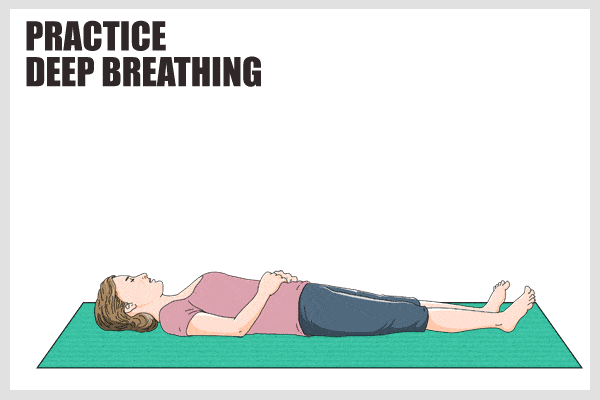In this article:
Billions of cells come together to form the human body. These building blocks are the most basic units of life that work in complete symphony as a coordinated whole to enable all our bodily functions.

Our ability to move around, eat, breathe, reproduce, and carry out every activity that qualifies us as living beings depends upon the proper functioning of these cells.
When your body is presented with a stimulus, the different cells in different organs work in tandem to produce a proper response. This coordination is helmed by the nervous system, which is the motherboard of the body. It consists of a complex network of the autonomic, motor, and sensory nerves, which are involved in everything that the body does.
The nervous system reacts to changes both outside and inside the body by using electrical and chemical means for the transmission and reception of messages to and from the brain, the spinal cord, and other sensory organs. It plays a vital role in many important functions of the body, including regulating breathing and digestion, controlling movements, and regulating temperature.
Symptoms of a Weak Nervous System
Symptoms of a weak nervous system vary depending upon which part of the system is affected and may be mild or severe.
Some of these symptoms are:
- Shortness of breath
- Headaches
- Excessive sweating
- Muscle weakness
- Poor memory
- Difficulty concentrating
- Twitching
- Pain
- Numbness and burning sensations in the hands and feet
Tips to Strengthen the Nervous System
Here are 10 ways you can improve the functioning of your nervous system.
Lifestyle changes
Adopting the following lifestyle changes can help improve the functioning of your nervous system.
1. Practice deep breathing
This simple yet effective technique can be very beneficial for those with a weak immune system. It can help you relax and reduce stress.
Deep breathing improves your body’s healing abilities and counteracts the effects of stress and anxiety. (1)
How to do:

- Lie down or sit in a comfortable position, putting your hands on your abdomen.
- Take a deep breath through your nose, expanding your abdomen and then filling your lungs with air.
- Hold your breath for 3 seconds. Then, breathe out slowly through your mouth and empty your lungs.
- Continue to inhale and exhale deeply for 5 to 10 minutes.
- Enjoy a short session of deep breathing 2 or 3 times a day.
2. Walk barefoot
Walking barefoot on the moist earth, soft grass, or a sandy beach for about 30 minutes daily can greatly benefit your nervous system and overall health.
Walking barefoot enables the electrons of the earth’s surface to transfer into your body. This, in turn, promotes physiological changes and improves your health.
A 2012 study published in the Journal of Environmental and Public Health highlights the manifold benefits of “earthing” (walking barefoot), such as improvement in blood viscosity, heart rate variability, inflammation, cortisol dynamics, sleep, autonomic nervous system balance, and stress level. (2)
Walk barefoot on grass, particularly in the morning, to balance your nervous system.
3. Spend time in the sun

Sunlight helps regulate the nervous system by helping the body produce vitamin D.
A 2013 study published in Pharmacological Reports shows the connection between vitamin D deficiency and increased risk of diseases of the central nervous system, particularly schizophrenia and multiple sclerosis. (3)
Also, a 2009 study published in Psychoneuroendocrinology highlights the role of vitamin D3 in central nervous system functioning, especially in relation to nervous system pathologies and aging. (4)
- Expose your body to early morning sunlight without using any sunscreen for 10 to 15 minutes daily to boost your vitamin D levels.
- You can also get vitamin D from certain foods. Salmon, tuna, milk, eggs, and fortified breakfast cereals are rich in vitamin D.
- You can opt to take a supplement, only after consulting with your doctor.
4. Try yoga and meditation
Make yoga and meditation a part of your daily routine to strengthen your nervous system. (5)(6) The combination of the three elements of yoga – poses (asanas), meditation (dhyana) and proper breathing practice (pranayama) – helps strengthen the peripheral nervous system.
Furthermore, yoga is good for elevating mood, reducing cortisol levels, boosting the immune system, and increasing overall physical and mental well-being.
Some of the yoga poses that are beneficial for the nervous system include:
- Adho Mukha Svanasana (Downward-Facing Dog Pose)
- Viparita Dandasana (Inverted Staff Pose)
- Adho Mukha Vrksasana (Handstand Pose)
- Setu Bandha Sarvangasana (Bridge Pose)
- Sarvangasana (Shoulder Stand Pose)
- Paschimottanasana (Seated Forward Bend Pose)
- Viparita Karani (Legs-Up-the-Wall Pose)
- Shavasana (Corpse Pose)
Note: As it is essential to do yoga poses in a proper manner, seek the help of an expert to learn the poses before practicing them on your own.
5. Exercise is an effective stimulant

Regular exercise is also important in strengthening the nervous system.
A 2005 study published in Current Sports Medicine Reports, points out that regular exercise has profound effects on numerous biologic systems in the body, including the central nervous system, and can influence psychological well-being and cognitive function. (7)
Walking, running, jogging, swimming, and bicycling are a few examples of physical activities that can be helpful in keeping the nervous system healthy.
Consult your doctor to find out what exercises will be most suitable for you.
6. Fix yourself an Epsom salt bath
An Epsom salt bath can also be beneficial for the nervous system. It helps muscles and nerves to function properly. (8) The magnesium present in this ingredient also helps increase the mood-elevating hormone serotonin in the brain, (9) which reduces stress and promotes relaxation.
How to use:
- Add 1 cup of Epsom salt to warm bathwater and stir thoroughly.
- Soak in this water for 20 minutes.
- Enjoy an Epsom salt bath once or twice a week.
Dietary interventions
Following the given dietary interventions can help ensure a healthy nervous system.
1. Add magnesium to your diet

This mineral is important for a healthy nervous system. The deficiency of magnesium has an inhibitory effect on several neurotransmitters that support signal transmission between nerve cells. (10)
Furthermore, it aids the body’s production of serotonin, which relaxes the nervous system and elevates mood. (9) It even promotes muscle relaxation.
How to consume:
- Eat foods rich in magnesium. Spinach, dark chocolate, lettuce, bananas, apricots, almonds, walnuts, lentils, brown rice, and pumpkin seeds are a few examples of such food.
- You can also opt for a magnesium supplement. Consult your doctor for the correct dosage.
2. Consume foods rich in omega-3 fatty acids
Start eating foods that are rich in omega-3 fatty acids in order to reduce the risk of a weak nervous system.
Omega-3 fatty acids – eicosapentaenoic acid (EPA) and docosahexaenoic acid (DHA) – are important for the development and functioning of the central nervous system. These fatty acids are necessary for proper neuron functioning and to improve nerve transmissions.
A 2008 study published in Neuromolecular Medicine points out the neurological benefits of omega-3 fatty acids, specifically in reducing the risk of neurodegenerative conditions and acute neurological injury. (11)
How to consume:
- Include foods rich in omega-3 fatty acids in your diet. Flaxseeds, chia seeds, walnuts, sardines, salmon, brussels sprouts, cauliflower, spinach, and canola oil are a few examples.
- You can opt to take omega-3 fatty acid supplements, after consulting your doctor.
3. Drink green tea

Green tea has a positive impact on your nervous system. L-theanine, an amino acid found in green tea, helps increase levels of dopamine and serotonin. (12) This, in turn, improves mood and reduces stress.
Furthermore, the caffeine in green tea helps increase alertness, focus, concentration, and thinking ability. (13)
Also, green tea is packed with antioxidants, which benefit the cardiovascular autonomic nervous system and reduce the risk of cancer, cardiovascular disease, diabetes, obesity, Alzheimer’s disease, and Parkinson’s disease.
How to consume:
- Add 1 teaspoon of green tea leaves or a green tea bag to 1 cup of hot water.
- Cover and steep for 5 minutes.
- Strain, sweeten with raw honey and drink it.
- Drink only 2 to 3 cups of green tea daily.
4. Chamomile helps your mind relax
This popular herb can be used as a mild sedative to calm the nerves and reduce anxiety. It can even be helpful in dealing with hysteria, nightmares, insomnia, and other sleep problems.
A 2012 study published in Phytotherapy Research found positive effects of chamomile essential oil on central nervous system functioning. (14)
How to consume:
- Add 2 teaspoons of dried chamomile to 1 cup of hot water. Cover and steep for 5 minutes. Strain, add raw honey for the taste, and drink it. Drink 2 to 3 cups of chamomile tea daily.
- Also, add a few drops of chamomile essential oil to warm bath water and soak in it for 15 minutes to soothe your nerves.
The study of essential oils has increased dramatically. Many medical benefits from essential oils are now being characterized at the biochemical level. A comprehensive and up-to-date review article summarizes the usefulness of essential oils in the context of the nervous system. (15)
How Does The Nervous System Work?
The nervous system is broadly divided into the following:
- Central nervous system: Consists of the brain and spinal cord, which serve as the control panel of the body to process the information received from all parts of the body as well as the environment.
- Peripheral nervous system: Consists of vast neural networks that connect your central nervous system to the rest of your body.
The nervous system follows a three-part process:
- The central nervous system receives sensory input from the body as well as any external stimuli through specialized nerve cells known as neurons.
- The sensory message received is then processed and interpreted by the central nervous system.
- Finally, the central nervous system relays the message for an appropriate response via the neurons in the form of electrical impulses to different sensory organs.
Problems With Your Nervous System Can Occur Due to:

Furthermore, chronic stress increases the activity of the sympathetic nervous system and affects the autonomic nervous system. (21)
This results in hyperactivity, cardiovascular stress, muscle tension, and other intensified functions, thus leading to the malfunction of nerve cells and other problems.
Additional Tips
- Do not smoke or use other tobacco products.
- Get plenty of rest and sleep after a long hectic day.
- Get your blood sugar and high blood pressure under control.
- Drink plenty of water and other fluids, as dehydration is not good for the nervous system.
- Limit your intake of caffeinated and alcoholic drinks.
- Strive to learn new skills to increase your attention span and keep you focused.
- End a bath with a few seconds of a cold shower to stimulate your nervous system. However, avoid the head region.
- Do not use non-prescribed medicines.
- Protect yourself from head injuries and accidents.
Final Word
Any trouble with the nervous system can seriously affect your quality of life since it controls the functioning of the entire body. The above listed lifestyle and dietary measures can help strengthen and preserve your nervous system to avoid such problems.
- Was this article helpful?
- YES, THANKS!NOT REALLY



